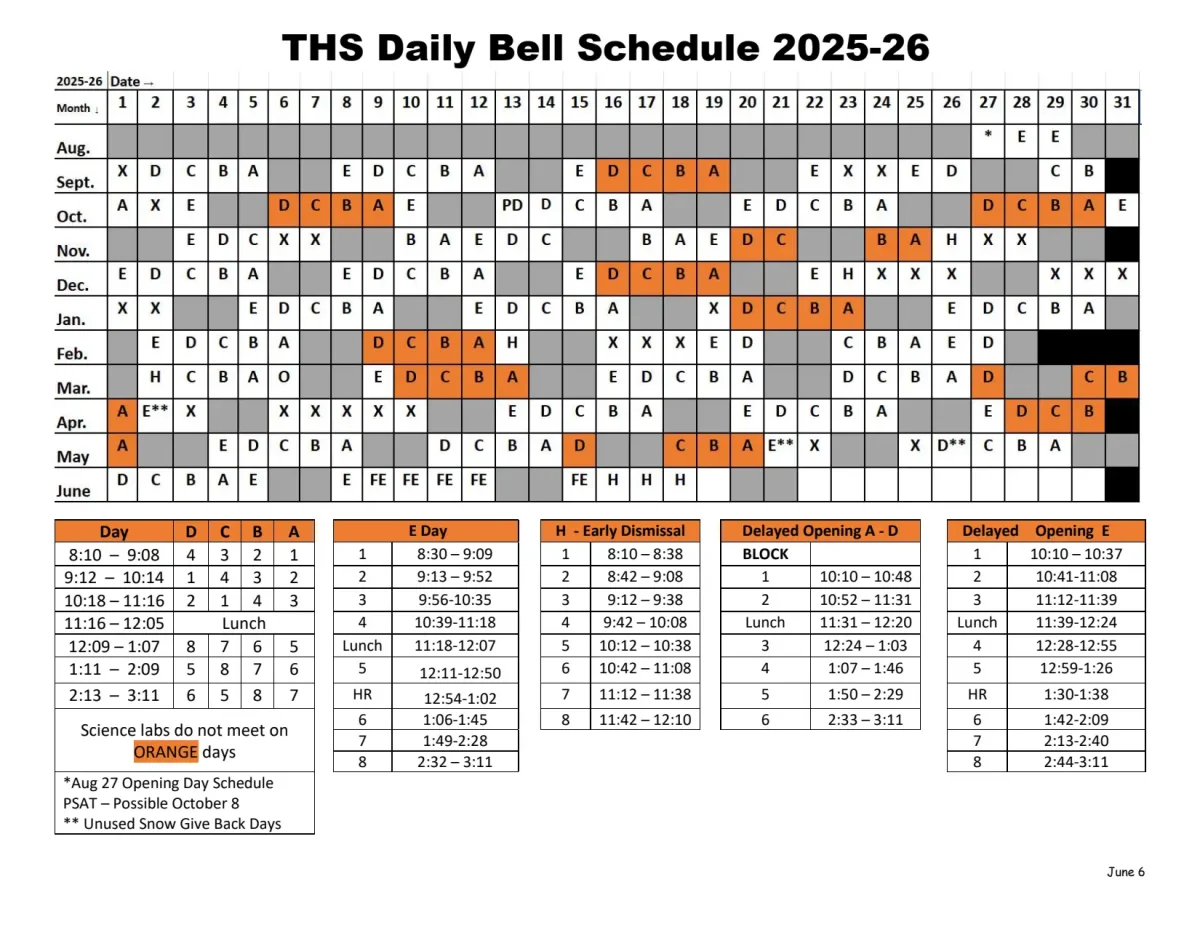Like the rest of the world, the academic landscape is constantly evolving. How schools operate now compared to just a few years ago seems like an alternate universe. A few years ago, most assignments were done with paper and pen, and now, for almost every class, assignments are typed and submitted online. As education rapidly changed to an online-based institution, standardized tests like the ACT lagged behind. But that is not the case anymore. The ACT faces a much-needed makeover, hoping to provide students with flexible testing options and match the standards of the ever-changing academic sphere of which it is part.
The changes to the ACT were announced in July of 2024 and will be implemented in April of 2025. Students who opt for the online test in April will receive the improved version, but students who opt for the paper version will take the normal format with no enhancements. An enhanced paper version will be available to students in September of 2025, allowing them to choose whether to take the test online or on paper.
Last year, the SAT, ACT’s competitor, completely changed its test, making it virtual, shorter, and more manageable. The College Board reported positive feedback on the digital SAT: “Students and testing staff overwhelmingly say they prefer the digital test over paper and pencil due to the easy-to-use Bluebook student testing app and a shorter test and test day.” The new ACT will undergo some of the same changes the SAT has implemented, making the two more comparable competitors.
So, what exactly are the changes to the ACT?
Optional Science Section:
The ACT was traditionally composed of four parts: English, math, reading, and science. The new version will make science an optional section, which students can pay extra and opt-in for. Though anyone can choose to take it, the ACT only encourages students who plan to major in science or a STEM field, as it allows them to showcase their science skills. Science being optional also changes how composite scores are calculated. Composite scores will still be out of 36 but will just be based on math, reading, and English scores, while science will be reported separately.
Fewer Questions:
Additionally, the ACT will have 44 fewer questions. English will have 50 questions instead of 75, reading will have 36 questions instead of 40, and math will have 45 questions instead of 60. However, the optional science section will remain 40 questions. The passages for reading and English will be shorter, allowing the questions to be more easily understood. All the sections will have a few field questions, which will not be counted towards the composite score.
More Time Per Question:
People often complain about the lack of time for each section, but with this new version, there is hope for a calmer testing experience. The test, totaling two hours and 45 minutes with the science section, is only ten minutes shorter than the current version. And, if you take the ACT without the science section, it is only two hours and five minutes. This reduction in the number of questions per section represents a significant improvement. According to OnToCollege, students will have six to fourteen extra seconds per question depending on the section.
“As an ACT tutor, I’ve worked with countless students who feel overwhelmed by the test’s pace, especially those without extra time accommodations,” Madison Reimer, ACT tutor and founder of Atomic Minds Tutoring, said. “This change is a game-changer, offering students more time to think critically without rushing.”
Fewer Answer Options for the Math Section:
Another drastic change is having four answer options instead of five on the math section. This will give students a better chance of getting an answer right when guessing and eliminate some confusing answer choices.
“Though there are many positive changes, I am concerned about how the new digital format, debuting in April, will impact students,” Reimer said. “Many rely on paper-and-pencil techniques, especially in the reading comprehension section, such as underlining key details and annotating passages—strategies that may no longer be possible. Students are creatures of habit, and throwing multiple variables at them—like a new format, fewer questions, and a digital interface—could leave them feeling unsettled. My goal as a tutor will be to help students adapt to these changes, develop new strategies, and approach the test with confidence despite the shifts.”
As the ACT shifts to a new format, students question if these changes will negatively or positively impact their testing experience.“As a junior, I have been studying for the ACT for a few months and have already taken it twice,” Shira Vachnich (’26) said. “I still have not gotten a score I am happy with, and I plan to take the ACT again when the changes are implemented. I am curious to see how the new test format will impact my scores.”













































































































































